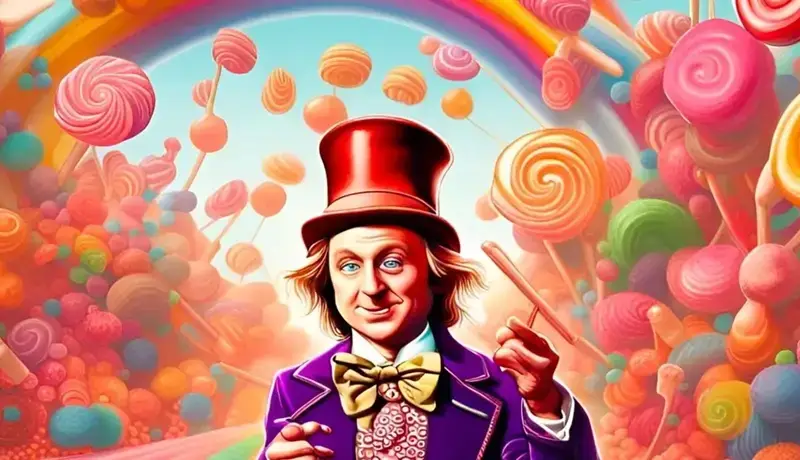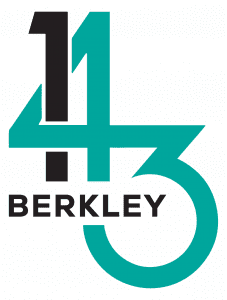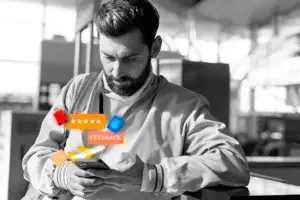Are we a few months late submitting our take on this debacle? Yes. But we’re still pumped to share our thoughts because: 1. We’re blessed to have been working with a lot of great new clients lately (hence the delay). 2. This story brought to light an important conversation around AI use that’s still relevant. So without further ado, let’s start…
Unwrapping the Disaster
Full disclosure: ChatGPT wrote that header. And it’s a pretty good one. It serves as a great starting point for the argument we’re making too.
While a bot generated this line, it’s the result of specific directions we submitted:
- We asked it to take a friendly and informative tone.
- We told it to give us some clever options because our brand voice includes fun wordplay.
- We carefully reviewed the generated results and asked for specific tweaks.
- We thought about our audience and made the conscious choice to publish the line “Unwrapping the Disaster.”
- Overall, we used ChatGPT as a starting point but ended up rewriting and restructuring most of the draft it created, as we know our style and audiences better than a bot ever could.
Meanwhile, the Wonka event organizers seem to have:
- Asked a bot to create a plan and scripts for a Wonka event, with little attention to detail or direction.
- Asked a bot to create promotional images for the event, again with little attention to detail or direction.
- Failed to do any kind of meaningful review or tweaking to any of the generated materials before publishing.
- Put on a spectacularly low-quality event (to put it nicely).
TLDR: we used ChatGPT as a tool instead of an answer for our small business. The Wonka event organizer created a case study for the opposite process this past February.
Now let’s briefly break down what this now-infamous Glasgow event could have looked like if AI had been used as a tool instead of an answer.
Marketing The Mishap
Let’s start with the event’s marketing because the organizers opted for AI-generated images to promote their event. While there’s nothing inherently wrong with using AI for this purpose, these images crossed a line. Not only did they blatantly infringe on copyright and trademark properties associated with Wonka films and the original Roald Dahl IP, they also promised production values that were simply not attainable.
True, marketing should be eye-catching. But more importantly, it should remain in the realm of what’s realistic. While a rational person wouldn’t call these images ‘photorealistic’ it can still be argued that they’re promising a level of set decoration, activities, and immersion that the event was never equipped to provide.
And if overpromising via AI images wasn’t bad enough, the lack of basic quality control resulted in marketing materials riddled with misspelled words and downright disturbing depictions of Wonka himself.

The Scripting Debacle
Despite the creation process of promotional items being iffy, the event did garner attendees. That’s where the next problems began.
The scripts handed out to the event’s actors were also churned out by AI, resulting in what can only be described as gibberish. Imagine being tasked with delivering a 15-page monologue as Willy Wonka. Then imagine if that monologue was filled with nonsensical phrases and odd new characters that don’t even exist in the Wonka universe. Finally, imagine getting this monologue very shortly before the event because (most likely) the reliance on AI had inspired critical levels of procrastination.
Again, it appears none of this AI-generated content received a review or editing. A request for a script was made and not questioned. Not only did this create an otherworldly nightmare for attendees, it also quickly turned the actors into whistleblowers (rightfully so). The overreliance on AI to create a cohesive narrative was extreme but also easy. No wonder the whole thing fell apart faster than a melting chocolate bar on a summer day.
The Takeaway: Keeping AI In Its Lane
AI can be a powerful tool, but we’re here arguing for responsible use. As we admitted in the intro of this blog, AI had a hand in drafting what you’re currently reading. But that’s the thing: it played just one part.
AI isn’t a silver bullet. You can’t just plug in some data and expect it to work flawlessly. We’d wager that no matter how advanced AI gets, it should never have the final say. AI needs human direction, human review, and for humans to take what it outputs to new heights. It feeds off what people have created and while it can do a pretty good remix, it’s incapable of applying critical or original thought. That’s where you come in!
We predict skill in working with AI as a tool will become a leg up for many careers, especially for marketers and creatives. The Wonka event is a useful cautionary tale to keep AI in its lane.
You’re the artist, AI is just the tool.
If you’d like guidance on using AI for marketing, or if you’d like to hire skilled humans to give you customized marketing help, send us a message.



